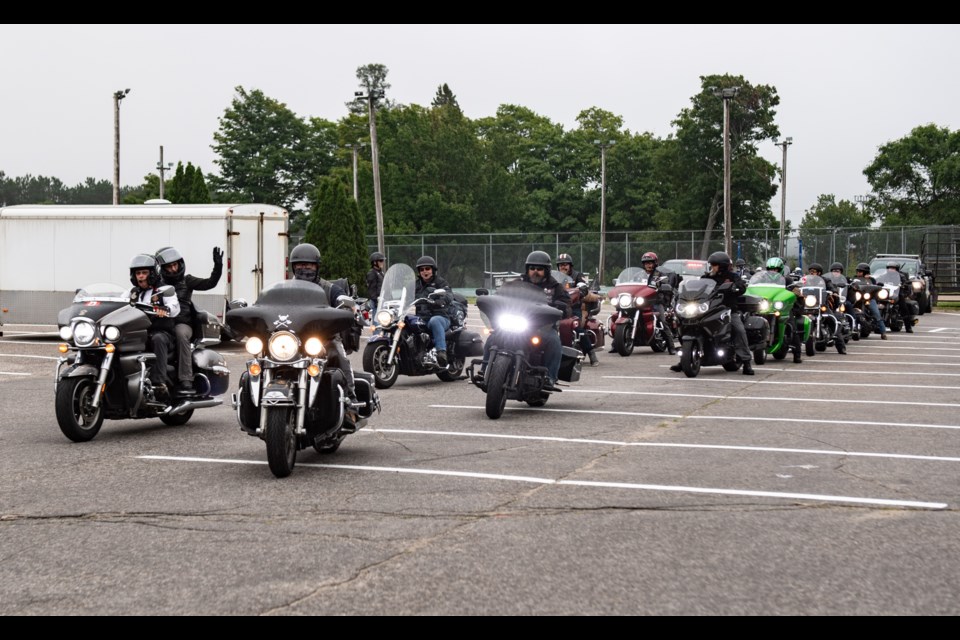The roar of motorcycle engines announced the arrival of The Rolling Barrage event Tuesday evening in North Bay.
It's a group of riders generating awareness, raising funds, and giving therapeutic support for people and their families who are suffering from the effects of Post Traumatic Stress Disorder (PTSD).
The name reflects Canada's military history when the artillery would employ the tactic of the "creeping barrage."
The stop-over is part of a cross-Canada tour that started August 2nd and is crossing Canada on a daily route until it “takes the ridge” during a grand finale in Vancouver on August 21.
Wednesday morning the group rode to a welcoming event at 22 Wing/Canadian Forces Base North Bay.
Paul Harman is the National Executive Chairperson and has been on the annual ride since 2017. His wife has PTSD and has joined the ride.
"My first day of riding I knew this was something special," Harman told BayToday. "It literally is a tribe - a brotherhood. People come out of their shell.
"We had a guy who was in a very bad place. He came out to do one small portion, then stayed on all the way across the Vancouver as a full-puller. (One that does the entire ride,)
"He started talking more and more and coming out of his shell. He's not fully healed but it's amazing to see people like that come out."
It's not a recognized therapy but it's a future goal of the organization says Harman.
"Ant motorcyclist that is heavy into riding, mant will have a patch that says, 'I don't have a psychiatrist because I have my motorcycle.' We joke that you never see a bike parked outside a psychiatrist's office.
"We call it 'wind therapy' and 'throttle therapy,' and it's very, very true!"
On any given day, and depending on the region, the group will contain 20 to 60 riders. Previous rides, before CUVID, have seen 200 on the ride.
Harman says PTSD is being taken more seriously now, but the stigma still remains. He wants to change that.
"That stigma is external and internal," he explains. "The general public will look at someone with PTSD as broken. It's also stigmatized by people who live with it. They feel broken. They feel unable to function. They feel very much isolated in their own world.
"There's a lot more awareness of it, but we haven't gotten past the stigma."
In this time of extreme stress brought on by the COVID pandemic, a record disastrous fire season, the climate crisis, economic crisis, and world conflict the occurrence of PTSD is on the rise.
PTSD affects people in the military and all first responders (police, firefighters, paramedics, nurses, doctors, caregivers, safety personnel and more), their loved ones, and families. Funds raised by The Rolling Barrage support the cost of treatment at such centres as www.rallypointretreat.org in Nova Scotia and www.campmyway.com in British Columbia.
From North Bay the Rolling Barrage is heading to Sudbury, Sault Ste. Marie, Thunder Bay and Winnipeg.
Soldiers and former soldiers join and leave the ride at various points. A large core has dipped its wheels in the Atlantic at the beginning of the ride and will dip them again in the Pacific at its end. This is the fifth year in a row, raising awareness that PTSD is real.
Their banner says "Some wounds can't be seen."
"This is the family you never knew you had," added Harmon.



